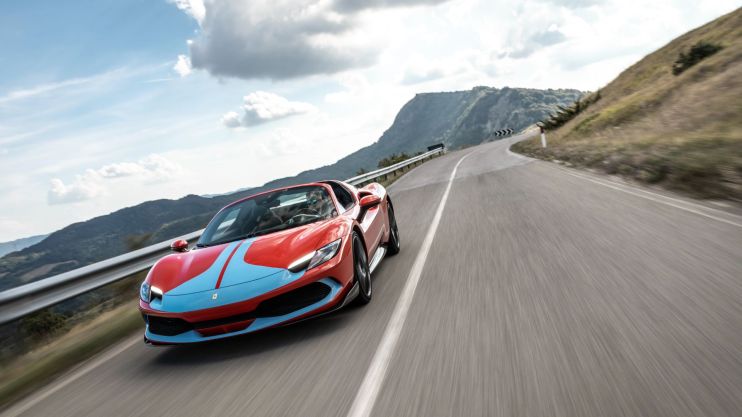Ferrari boosted by ultra-luxury consumers – but update falls flat with investors

Ferrari upped its forecasts for the year ahead on Wednesday, as the luxury carmaker benefitted from cash-rich consumers’ ambivalence to challenging economic conditions.
The luxury carmaker reported revenues of 1.47bn (£1.26bn), up 14.1 per cent year-on-year and an adjusted Ebitda of €589m (£507.2m), up 31.9 per cent.
For the year ahead, it is anticipating modest additional growth of around €2.2bn (£1.89bn), as opposed to its last forecast of between €2.13bn and €2.18bn.
Benedetto Vigna, Ferrari’s chief executive officer, said that the firm continued to “manage a very strong order book in all geographies” with the second quarter ending with “exceptional financial results, highlighting strong margins”.
“The decision to revise the guidance upwards was supported in particular by stunning results in personalisations,” he added, as drivers splash out to customise their vehicles with paint jobs and other flashy tweaks.
“Innovation is at the heart of Ferrari and continues to drive our growth and achievements, such as the unforgettable victory at Le Mans.”
Ferrari’s results are just the latest in a slew of luxury carmakers cashing in on demand for luxury vehicles and supercars, with the likes of Porsche and Bentley also benefitting from wealthy consumers’ spending during the cost of living crisis.
However, despite raising its outlook, the Milan-listed firm’s results failed to impress investors, with shares down 1.07 per cent by mid afternoon GMT following the announcement.
Bernstein analyst Daniel Roeska explained in a note that this reaction is due to the guidance upgrade being merely in line with expectations.
“This may come as a source of disappointment for some,” Roeska wrote.
The company had reported largely flat shipments in the second quarter, totalling 3,392 units and down 63 units on the previous year.
In fact, EMEA was the only region to see an increase in deliveries, with the Americas, China, Hong Kong and Taiwan all seeing slight downturns.
Ferrari also said its product portfolio for the last three months included nine internal combustion engines (ICE’s) and four hybrid-engine models, with hybrid deliveries reaching 43 per cent of total shipments – more than double the previous year.
That is despite bullish claims from the automaker in May that it would keep building petrol-guzzling ICE’s despite regulatory pressure, with boss Vigna stating that it would be “arrogant” to tell consumers what to buy.